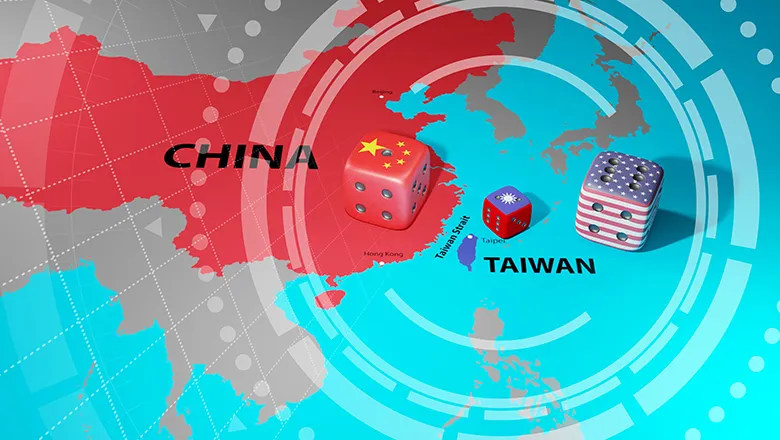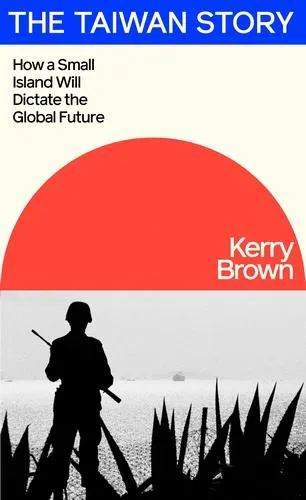“On the other hand, [Trump] also has big issues with the People’s Republic of China - if things came to blows, it would really be a third World War.”
Professor Kerry Brown, Director, Lau China Institute
11 December 2024
The Taiwan Story: Why the issue of Taiwan and China matters
The United States has played an important role in mediating the tensions over Taiwan in China. The election of Trump in 2024 makes a precarious situation even more unpredictable. In his new book, Kerry Brown explains why the issue is so important and why we need to maintain the status quo.

‘There can be few more dangerous bargaining chips than Taiwan’ says Professor Kerry Brown, Director of the Lau China Institute and author of new book ‘The Taiwan Story’, which sets out the ideological, political and economic reasons for why the issue of Taiwan and China matters to the world.
Following the election of DPP leader William Lai in Taiwan and Trump in the US, many describe the issue as the greatest geopolitical challenge of the 21st Century. China maintains that reunification of Taiwan is inevitable while the Taiwanese leader supports greater autonomy. The US has been almost a referee to the tensions. Now, with the election of Donald J. Trump relations between the US and China are expected to be even more difficult to predict.
What’s the issue?
Taiwan has been de facto separate from the People’s Republic of China since 1949 when the nationalists fled to Taiwan island following a civil war and established the Republic of China in Taiwan as a separate government, which prevails today. Since then, few nations recognize it as a separate state. The UK and US abide by the ‘One-China’ policy, that is there is one China. Taiwan today is a vibrant democracy but for the second largest economy in the world, Brown says that under President Xi Jinping, China now has the wherewithal to do something about Taiwan.
Following the inauguration of President Lai in May, China performed military drills around Taiwan and again later that year after comments by the leader that they would resist annexation.
The US – keeper of the peace?
The US has typically played principal referee and a sort of peacekeeper to the tensions but says China’s growing power both economically and militarily serves only to make this more difficult as time goes on.
"America has the means and the kind of desire to support Taiwan in defending itself through military sales, military training and through political support. And that has created enough doubt amongst people in China to not do anything about Taiwan.
The election of Donald J. Trump however has made a precarious situation more unpredictable. Trump is more transactional and has spoken in the past of Taiwan almost being like a negotiable issue. If Taiwanese don’t give America a better trade deal on semi-conductors, then the US would want to question its defense spending for Taiwan. On the other hand, he also has big issues with the People’s Republic of China - if things came to blows, it would really be a third World War.”
Is there a solution?
In his book, Professor Brown argues for the need to maintain the status quo. “Taiwan is a fellow democracy so its not just a geographical issue, its an ideological issue, a values issue. Secondly, its really about the autonomy and independence of Taiwanese people”.
There are very few people in Taiwan today, of the 23 million, who would regard reunification as something they would want under the current situation. Under Harris, there would have been a continuation of the Biden approach. With Trump, things are more difficult to predict.
One silver lining, Brown says, is that China has changed dramatically, and Taiwan has become a democracy in ways that no one could have foreseen. There is no easy solution, we best stick with what we have, which is the status quo.
It’s impossible to see how Taiwan and China may reconcile until sovereignty and identity is thought about in radically different ways.
Watch the video


